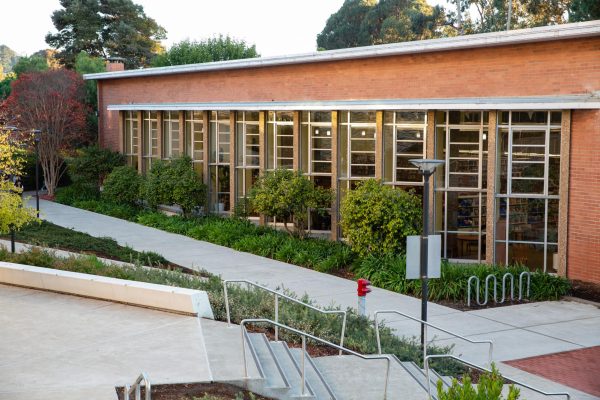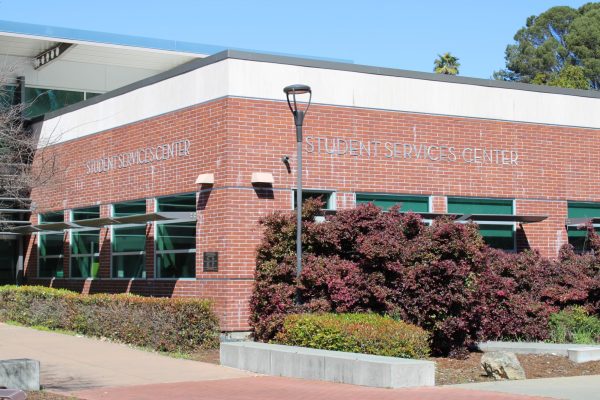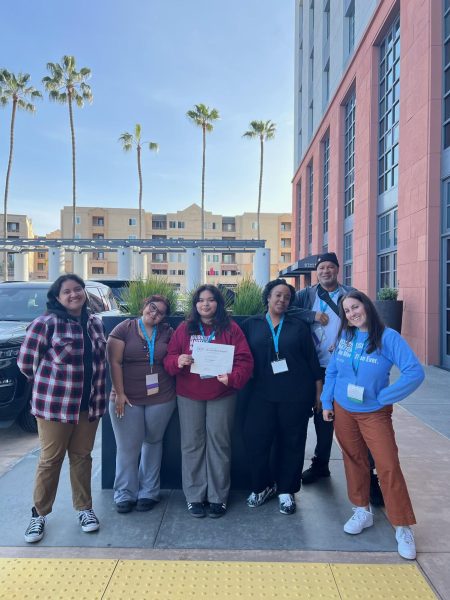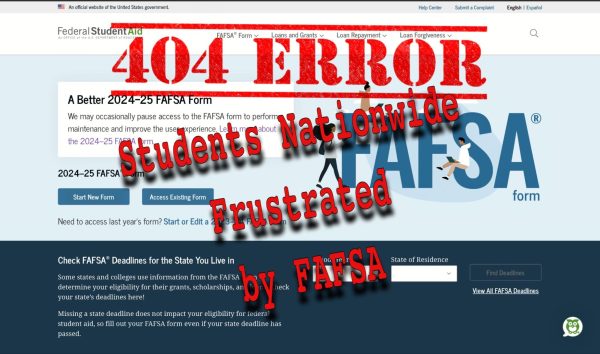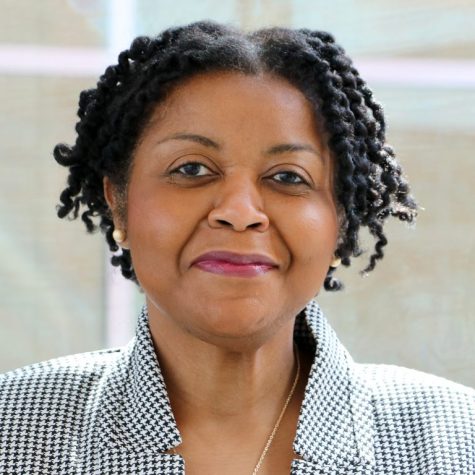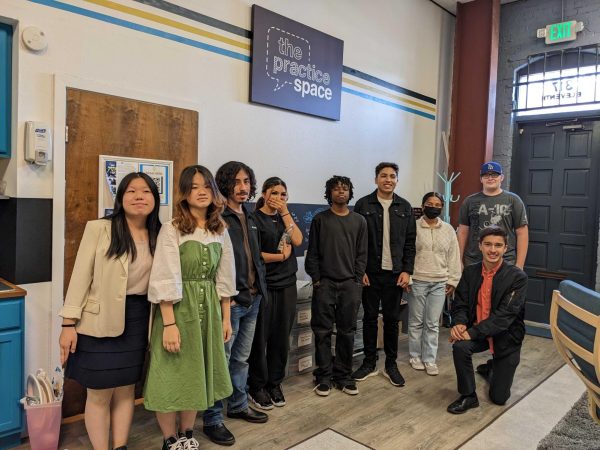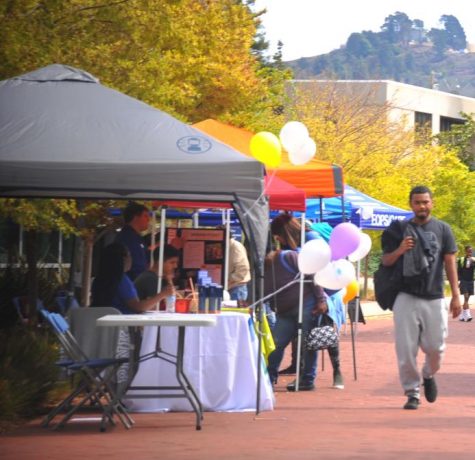District to quell ICE fears, plan aims to inform
Executive orders jumpstart talks to protect rights
March 8, 2017
The sanctuary district resolution passed by the Contra Costa Community College District in January protects undocumented students and employees of Contra Costa, Los Medanos and Diablo Valley colleges, but fears for marginalized communities linger.
CCC’s Police Services Lt. Tom Holt said he and his team stand firm on following the resolution to protect undocumented students.
“We, as a police department, are not looking at (their status). I hope this (the resolution) gives people some peace, so that they can understand that this is not our focus.
“This is not something we are focused on. It doesn’t seem like an issue to me. I am not trying to say that I don’t understand that people can be concerned with that, but to me, since I am in charge of Police Services, we are not looking. I haven’t heard that any of the outside agencies are looking (either),” Holt said.
The resolution, which was passed at a special board meeting on Jan. 12 at DVC, states, “Be it further resolved, the Contra Costa Community College District will not cooperate with any effort, federal or otherwise, to create a registry of individuals based on any legally protected characteristic, such as religion, national origin, race, ethnicity, sexual orientation or gender identity.”
Holt said, “If somebody comes here and says they have a warrant for ‘John Doe,’ we don’t share information with them. If I can determine that person was not a student here, I can tell them, ‘They are not a student here,’ and that alleviates the problem.”
“You have to have a reason to stop somebody. You can’t just stop somebody because of the way they look, because of their race, nationality, the way they are dressed. They are not going to do a sweep here,” Holt said.
“I am not going to say, “Hey, they are over in the LA Building,’ or what their classes are. We aren’t going to give them any personal information. We don’t share that. That is backed up by the resolution.”
District Director of Public Safety and Emergency Preparedness Ed Carney said, “I can’t imagine that it’s a possibility. I cannot imagine that there would be a purpose to come in and do a random search.”
Although there is no rule or law that says ICE has to contact Police Services to come on campus, Holt said it would not make sense for them to show up.
During a district meeting on March 2 at 12:30 p.m., Padilla said they talked about ways to ease communication throughout the three campuses if President Donald Trump were to pass any executive orders that would directly affect students in minority groups.
“When that news hits that campus, then what is going to be the process? Who do we send out the information to, who is going to evaluate it for legal interpretation, how it impacts our students?” Padilla asked. Then we need to send out a rapid communication about what we are going to do about that particular executive order, she said.
She said another way to support undocumented students is by helping them financially, with legal consults if necessary.
Padilla said, “LMC was asking if we could use funds to support students to meet with lawyers to talk about their immigration status. It looked like, based on the state code, we were not allowed to use our funds that way.”
Padilla said they will continue to find ways to help fund these initiatives for students.
La Raza studies major Luis Ledesma said, “I personally think sanctuary campuses claim alliances with undocumented students. That is not enough. I want our campuses to be accomplices to bring justice to the broken system.”
He said students need “restorative” justice programs, mental health programs and financial aid counselors to be fully informed about the needs of AB 540 students and other minority groups on campus.
Assembly Bill 540 was signed into law by Gov. Gray Davis on Oct. 12, 2001.
AB 540 exempts students from paying nonresident tuition at CCC and other California community colleges and universities if the student attended high school for at least three years and graduated, or received a GED or certificate of equivalency.
Carney said the purpose of the meeting was to find ways to better communicate the purpose of the resolution, because it is more than just words written on paper.
“We need to find any means of communication,” he said.
The group that met on Thursday was made up of Chancellor Fred Wood, faculty and staff, CCC’s President Mojdeh Mehdizadeh, DVC’s Interim President Ted Wieden, LMC President Bob Kratochvil, Executive Vice Chancellor Gene Huff, CCC HSI STEM Manager Mayra Padilla and Carney.
Holt said if federal agents come to the campus with a warrant, his job is to make sure it is valid before any further steps are taken.
On Feb 15, there was a rumor circulation in the Richmond-San Pablo community that ICE agents were on campus, bringing some hysteria to the campus and community members.
Also, that day, just before the Coffee with a Cop event, a CCC student was detained for possession of marijuana.
“We were doing Coffee with a Cop and it just so happened that we heard that this kid had a bunch of marijuana on him. And that somebody had actually seen him with a large bag,” Holt said.
“When they said that (ICE was on campus), it was cold out and I thought they were actually talking about ice on the pavement. Literally. Within three to five seconds I found out what they were talking about,” Holt said.
But in order for agents to come to campus, there is a procedure to follow.
“If I am going to go somewhere, to another jurisdiction or if someone is going to go to our jurisdiction, it’s common practice that you call and say, ‘Hey, we are going to be there,’” he said.
But Holt said, “If they had been here and come in and didn’t tell the local police departments, I assume they are going to roll up in unmarked cars. Or at least in cars that were not clearly marked with (emergency vehicle) plates. (What would happen if ICE came to the college) is just as mysterious to me as it is to anyone else.”
Carney said it definitely will not happen on the district’s college campuses, and even if the agents have a subpoena there would not be permission granted to proceed.
Padilla said a College Council meeting will be held Thursday in GE-225 from 2-4 p.m. to approve a plan of action to communicate this information to CCC students.



